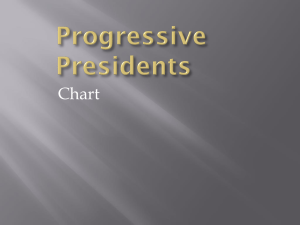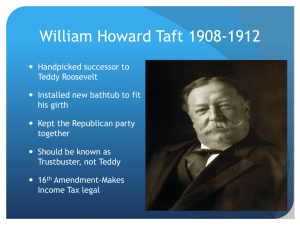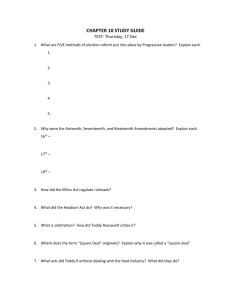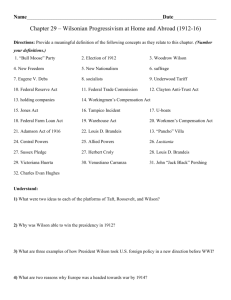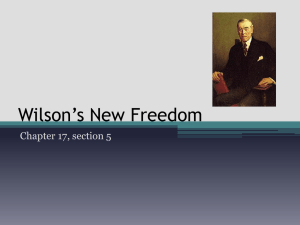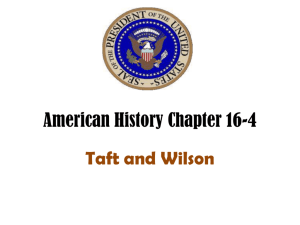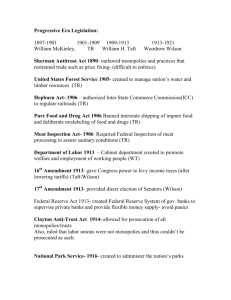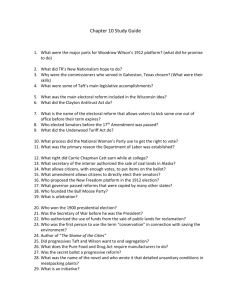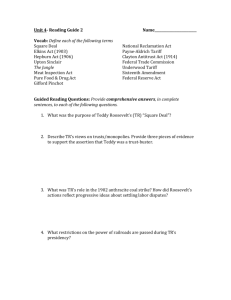9.5 Wilson`s New Freedom - Clayton Valley Charter High School
advertisement
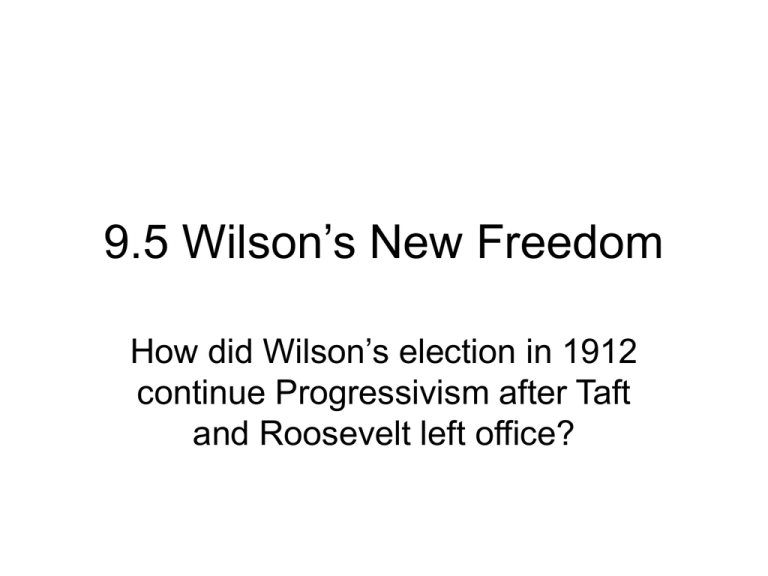
9.5 Wilson’s New Freedom How did Wilson’s election in 1912 continue Progressivism after Taft and Roosevelt left office? Wilson’s Effect on Business • Wilson, former governor of New Jersey, pushed for many progressive causes • He also passed two antitrust measures: – Clayton Antitrust Act of 1914, which made it more difficult to form monopolies, said that (1)people who ran companies could be held personally responsible for violations to the law, and (2) ruled that labor unions were not considered trusts (making strikes and boycotts legal) Continued • He also passed the Federal Trade Act of 1914, which set up the Federal Trade Commission (FTC), an agency that had the power to investigate businesses for the government • He also worked to lower tariffs, because he believed that high tariffs encouraged monopolies • He raised the cost of imported goods to cut competition against American goods Problems • Without money from tariffs, the government needed another source of money and turned to an income tax through the 16th Amendment • Wilson also changed the banks through the Federal Reserve System, dividing the country into 12 districts controlling the country’s banks • This system controlled the money supply and made credit more easily available Women’s Suffrage Makes Progress • Local organizations used door to door campaigns to win support, college educated women joined in reaching out to working class women, and women used bold tactics of British suffragists to get attention • World War I was the catalyst to get women the vote because of their support of the war effort and active role in public life • The Nineteenth Amendment was finally passed in 1919, and ratified in 1920 Hypocritical View on Civil Rights • Wilson, like Roosevelt and Taft, backed away from civil rights; he won support from the NAACP in 1912 by promising to treat African Americans equally, and promised to speak out against lynching • However, he later opposed federal laws against lynching b/c he felt states and not the government should enforce such laws • He also chose cabinet members who extended segregation • As World War I developed, the public became less and less concerned with reform
